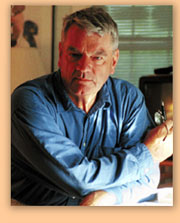
|
The
Times |
Withholding Public Records from Court Actions
London, October 19, 1997
Sir,
As has now been ably proven by Ian Mitchell in The
Cost of a Reputation, key files of the wartime
Foreign and War Offices which upheld Tolstoy's historical
arguments were withdrawn from public scrutiny at the PRO on
dates between 1987 and 1989 and not replaced until the trial
was over - the FO not restoring the most crucial item,
FO.1020/42, to the public domain until November 1991. By
that time Tolstoy had lost the action (in November 1989),
being ordered to pay £2m damages and costs to the
plaintiff, and seen his appeals founder too.
I might add that my own experience was very different. In
1969, when I was forced to defend the libel action brought
by Captain J E Broome, DSO RN, against my publishers and
myself (Broome v Cassell & Co Ltd., which
now enlivens every law student's curriculum) the Admiralty
disclosed many still-secret records equally and without
favour to both myself and the plaintiff's lawyers, including
even the products of signals Intelligence. (The "ultra"
secret was not finally made public until 1974). Yours faithfully, |
© Focal Point